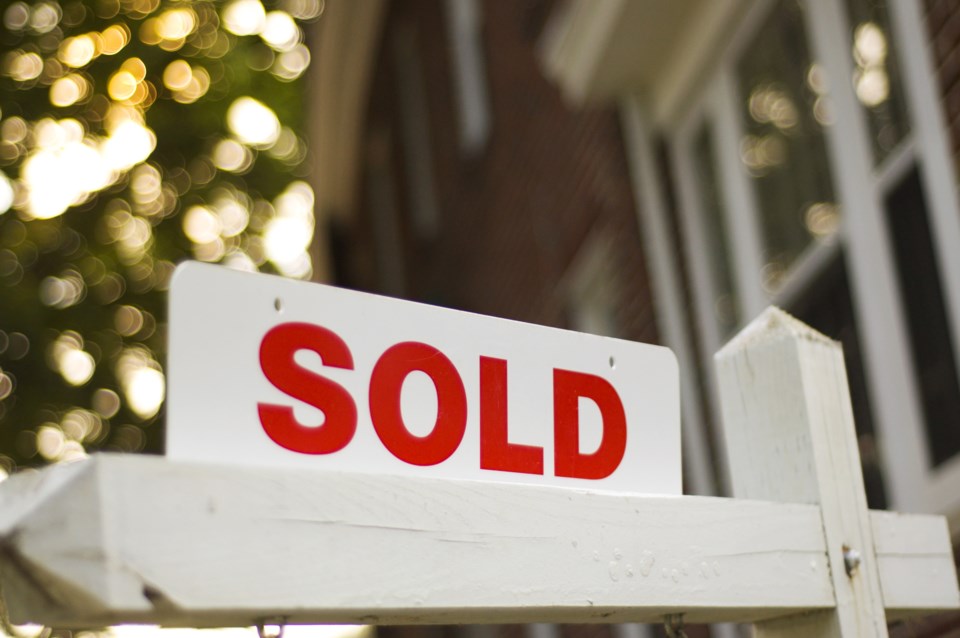It’s ironic but true that the COVID-19 pandemic's lockdowns and restrictions have had their good side for some, such as realtors.
Business has boomed, in part because technology such as virtual meetings, now used everywhere in the COVID era, has allowed people from Toronto and other large southern Ontario cities to get away from the hustle and bustle and perform their jobs, hundreds of kilometres away, in homes purchased in more affordable communities such as Sault Ste. Marie.
“Pre-COVID (the real estate market) was pretty well normal for Sault Ste. Marie and the Algoma region. People were able to go through the normal processes of purchasing a home, doing their pre-approval, getting an inspection and it was pretty relaxed,” said Tracey Rutkauskas, Sault Ste. Marie Real Estate Board (SSMREB) president.
Then COVID hit.
“It was like shaking a pop bottle with a lid on it, and then opening it up. We saw it (rising demand and rising prices for homes) in other regions across the province, then it just kept creeping north and it caught up to us,” Rutkauskas said.
“We had one of the lower property values here in the north, and we still do, but for us to see this substantial rise in prices of homes being sold, it shocked a lot of us...Sault Ste. Marie is definitely going to see benefits to this with the population increase, because a lot of the buyers moved here from outside of the region, or they used to live here and they moved back,” Rutkauskas said.
“We do have people that have never lived here before. They just liked the area, the slower pace, where they could have a backyard...I’ve had clients who can work from home and see a beautiful beach and water and have that scenic view, instead of seeing concrete and windows of the house next door (as in many suburban Toronto neighbourhoods),” Rutkauskas said.
“The houses that are going up, the new builds, they’re not happening fast enough...there’s a limited inventory. The demand definitely exceeds the supply right now.”
“There have been record sales during the pandemic. Every record that existed for the Sault has been smashed during this pandemic...the number of units sold has gone up (in 2021, compared to 2020),” said Costa Poulopoulos, StreetCity Realty president.
StreetCity, with its home office in London, Ont., has expanded to St. Thomas, Port Dover, Sarnia, Sault Ste. Marie, Thunder Bay and other communities.
“The silver lining of this pandemic has been real estate, generally speaking, and the Sault hasn’t been an exception to that,” Poulopoulos said.
“The work from home phenomenon...made people realize ‘we can actually work anywhere, we don’t have to work in a big metropolitan area,’ so what we saw was a large contingent of people moving hours away (away from the GTA altogether and moving to the Sault, for example).”
“It’s super affordable and that’s why it (the Sault) is a high demand market. People are realizing ‘I can be 20 minutes from the water, I can work and I can have all this quality of life that maybe I wouldn’t have in a big metropolitan area.’”
“Cottages on Lake Huron have been purchased by people from Toronto because they realize they can work from home, with a view, and they can get out of the city,” said Mary Johnson, StreetCity vice president.
The pandemic, Poulopoulos said, has put the real estate world 10 years ahead in terms of technology used to complete sales, such as Zoom meetings with clients and virtual viewings of homes for sale.
“Transactions are happening more online (along with virtual showings of homes to prospective buyers) than they are in person. I can see this continuing and it’s making our job a lot easier, faster and more effective,” Rutkauskas said.
Hot real estate market aside, realtors do have some concerns moving forward.
Supply can’t keep up with demand in the real estate market, both in the Sault and province wide, Poulopoulos said.
“(Because of that) there’s an opportunity for...municipal governments doing zoning bylaws and permits to allow new builds to happen, and for all levels of government to work together to bring on more supply. It can happen. We’ve got a lot of land. We just need to make sure the governmental bodies at all three levels are working together to create more supply for the demand that’s out there.”
A source of concern to local realtors, Rutkauskas said, is Sault Ste. Marie city council’s passing of a resolution Monday to support the Federation of Northern Ontario Municipalities (FONOM) in its efforts to lobby the province for the ability to introduce their own taxes on property sales - known as a municipal land transfer tax, or MLTT.
While first time home buyers would receive rebates, other people might tend to shy away from selling their home and buying another if slapped with a municipal land transfer tax, Rutkauskas said.
“The MLTT is not a good thing,” said the SSMREB president.
“That would cool off the market, it would have a negative influence.”
